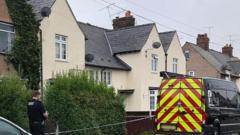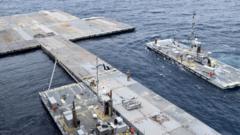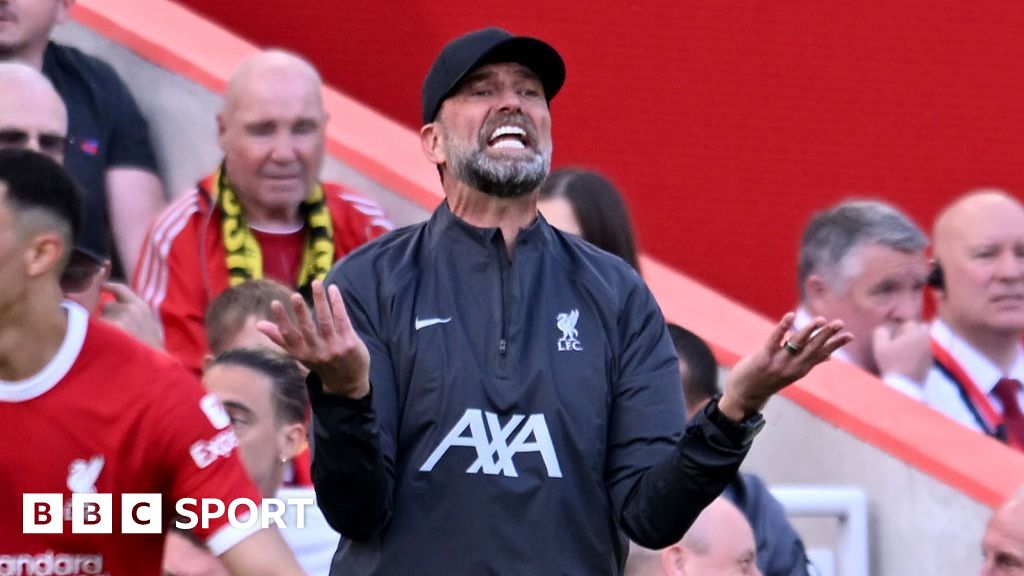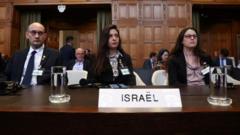A Boeing whistleblower who raised the alarm about a supplier who had been ignoring defects in the production of 737 Max jets has died suddenly at the age of 44.
Joshua Dean, a quality auditor at supplier Spirit AeroSystems, previously said he was fired in April 2023 for questioning standards at the company’s manufacturing plant in Wichita, Kansas.
Spirit manufactured the door plug that blew out midair on an Alaska Airlines flight in January. Dean died on Tuesday after a sudden illness, his family said on social media.
Earlier this year, Dean told NPR in an interview: 'I think they were sending out a message to anybody else. If you are too loud, we will silence you.'
Joshua Dean, 44, who went by Josh, is pictured in an undated photo. He passed away Tuesday after being admitted to the hospital complaining of shortness of breath
Josh Dean was employed by Spirit AeroSystems based in Wichita, Kansas
Dean's aunt, Carol Parsons, confirmed his death in a series of Facebook posts, as did other family members in messages seen by MailOnline. She also confirmed his death in a statement to The Seattle Times.
Parsons told the newspaper that Dean went to a hospital in Wichita, Kansas, where he lived, after experiencing breathing difficulties. During his stay, Dean developed MRSA, pneumonia and needed to be intubated.
'I am grateful for the prayers of my family and friends for this young man,' she wrote on Facebook. 'He passed away yesterday morning, and his absence will be deeply felt. We will always love you Josh.'
'Our thoughts are with Josh Dean's family. This sudden loss is stunning news here and for his loved ones,' Joe Buccino, a spokesperson for Spirit AeroSystems said.
Boeing has long denied Dean, and other whistleblower claims that the company willfully ignored safety warnings.
As recently as Monday, Dean was conscious and communicating with doctors, his mother said in a post on Facebook. At the time, a doctor told him that he had a '50/50 chance of living.'
'Josh is very depressed, frightened, and doing a lot of sleeping and not responding as much as he was a few days ago and has not been on any sedation or pain meds,' his mother wrote.
In his final days, Dean was breathing through an ECMO machine. 'The doctor asked him if he wanted the machine turned off, and he wouldn't respond. I told the doctor he doesn't know what he wants, I'm sure he wants to live,' his mother added.
She went on to say that her son was sedated and a procedure was done to investigate the damage done to his lungs through the pneumonia, which he pulled through.
In March, another Boeing whistleblower, John Barnett (pictured) took his own life in the midst of a legal action against Boeing
Boeing Co. 737 fuselage sections sit on the assembly floor at Spirit AeroSystems in Wichita, Kansas in a file photo
In early January, an unused emergency exit door blew off a brand-new Boeing 737 Max shortly after take-off from Portland International, sparking a still-ongoing DOJ investigation
Doctors found that Dean contracted MRSA and tested positive for influenza B, a further scan found that he also suffered a stroke.
On Wednesday, Parsons wrote in a Facebook post: 'I am grateful for the prayers of my family and friends for this young man. He passed away yesterday morning, and his absence will be deeply felt. We will always love you Josh.'
Dean's brother Justin died just this past January at the age of 26.
In January, Dean told The Wall Street Journal that he was fired because he pointed out that holes were wrongly drilled in a fuselage, something his employer denied.
'It is known at Spirit that if you make too much noise and cause too much trouble, you will be moved. It doesn't mean you completely disregard stuff, but they don't want you to find everything and write it up,' he said.
In March, another Boeing whistleblower, John Barnett took his own life in the midst of a legal action against Boeing.
He died of a self-inflicted gunshot wound - though his friends contested this, saying that he told them before 'if anything happens to me, it's not suicide'.
Dean and Barnett were represented by the same attorney, Brian Knowles, who would not speculate on his clients' sudden deaths in brief comments to The Seattle Times.
'Whistleblowers are needed. They bring to light wrongdoing and corruption in the interests of society. It takes a lot of courage to stand up,' Knowles told the outlet.
Dean described a pizza party held in the Wichita plant to celebrate a decline in the number of defects reported, saying that chatter at the meal quickly turned to the observation that the gains were due only to under-reporting problems.
'We're having a pizza party because we're lowering defects. But we're not lowering defects. We just ain't reporting them, you know what I mean?,' Dean said in his NPR interview.
He went on to tell the station that both his father and grandfather previously worked at he same Wichita plant as him and said that he quickly grew frustrated with the workplace culture.
'Now, I'm not saying they don't want you to go out there and inspect a job. You know, they do. But if you make too much trouble, you will get the Josh treatment. You will get what happened to me,' he said.
Dean's complaints are included in a shareholder lawsuit filed against Spirit in December, alleging the company failed to disclose defects.
Spirit told the Journal that it strongly denies the allegations in the lawsuit said that it remains 'focused on the quality of each aircraft that leaves our facilities.'
Boeing engineer Sam Salehpour testifies before the US Senate Homeland Security and Governmental Affairs Subcommittee on Investigations
Last month, Boeing engineer Sam Salehpour, said excessive force was applied to fit panels together on the 787 assembly line, raising the risk of fatigue, or microscopic cracking in the material that could cause it break apart.
The Boeing officials described how sections of a fuselage are brought together.
Shims are added to fill gaps, holes are drilled and cleaned, and fasteners attached to apply 'pull-up force' that 99% of the time results in margins no greater than .005 inches (0.127 millimeters) apart — the width of a human hair, they said.
A gap problem was discovered in 2019 between two panels, which led to design and assembly changes, they said.
Boeing conducted testing replicating 165,000 flights with no findings of fatigue in the composite structure, Steve Chisholm, Boeing's vice president of structural engineering, said. The average 787 makes 600 flights a year, he said.
The company said planes already in use are proving safe. Chisholm said 671 Dreamliners have undergone the intensive inspections for 6-year-old planes and eight have undergone 12-year inspections with no evidence of fatigue in the composite skins.
Cracks have been found on metallic parts, including a piece above where the wings join the fuselage, and Boeing issued inspection guidelines for those parts, the officials said.
The 787 Dreamliner is a two-aisle plane that has often been used on international flights since its debut in 2011. The composite material makes the plane lighter, contributing to better fuel efficiency.
A series of battery fires briefly grounded the planes. Deliveries of the aircraft have been stopped at times because of questions about gaps between fuselage panels that were wider than Boeing's standards allowed, the use of unapproved titanium parts from a supplier in Italy, and flaws in a pressure bulkhead.
The Federal Aviation Administration must inspect and approve each 787 that rolls off the assembly line before it can be flown to an airline customer.
The whistleblower Salehpour claims that after he raised safety concerns about the 787, Boeing transferred him to work on an older widebody plane, the 777. He told the Seattle Times that he saw workers jumping on fuselage panels to get them in alignment, which Boeing disputes.
The New York Times reported that the FAA is investigating Salehpour's claims. The FAA, while not commenting specifically on Salehpour, said it investigates all safety reports.
Boeing says it is 'fully confident' in both planes.
Salehpour is the latest in a line of Boeing whistleblowers to come forward, often alleging retaliation for raising safety concerns. The company said it encourages employees to speak up about problems.
Lisa Fahl, the vice president of engineering for Boeing airplane programs, said employee reports have 'exploded' — with as many reports in January and February as were filed in all of 2023 — 'which is what we want.'

 2 weeks ago
2 weeks ago
.png)









